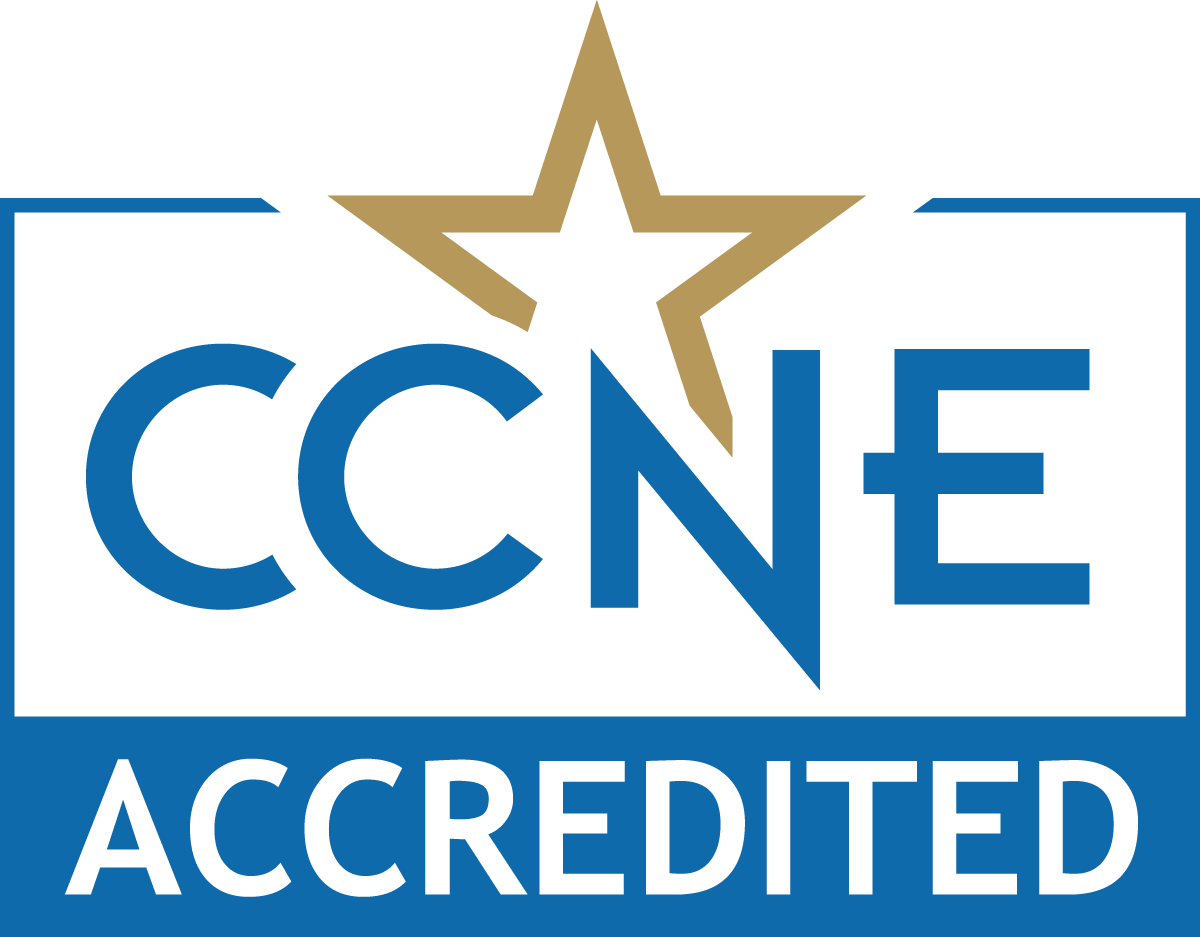Master of Science in Nursing – Family Nurse Practitioner Specialization

Pursue Your NP with an MSN Family Nurse Practitioner Specialization
The online Master of Science in Nursing – Family Nurse Practitioner (MSN-FNP) Specialization at Post University provides the opportunity to build the insights and skills you could use to make a positive impact on patient care. Your advanced nursing practice program places an emphasis on critical areas in primary care settings—assessment, prevention, diagnosis, and management of chronic and acute conditions. Coursework covers care across the lifespan, including maternal and childcare issues, and provides preceptorship experiences to translate online classroom learnings to real-world situations.
If you have a BSN degree, one year work of experience, and are passionate about providing quality patient-focused care as a leader of the healthcare team, our online MSN Family Nurse Practitioner Specialization may be for you.
Commission on Collegiate Nursing Education (CCNE) Programmatic Accreditation
The baccalaureate degree program in nursing and master’s degree program in nursing at Post University is accredited by the Commission on Collegiate Nursing Education, 655 K Street NW, Suite 750, Washington, DC 20001, 202.887.6791.
The Family Nurse Practitioner Specialization Program at a Glance
 Flexible Online Classes
Flexible Online Classes
![]() Monthly Start Dates
Monthly Start Dates
![]() 42-45 Credit Hours
42-45 Credit Hours
![]() 28-Month Program
28-Month Program
![]() Individualized Precepted Clinicals
Individualized Precepted Clinicals
Practice-Focused Curriculum for Real-World Skills
Coursework for your online family nurse practitioner program is designed to help you build the foundation of insights and practical skills necessary to:
- Assess, diagnose, and manage care of acute and chronic conditions and disease prevention across the lifespan
- Expand foundational healthcare management of women’s health and pediatric health
- Manage complex, acute, and chronic health problems across the lifespan
- Provide patient-centered, evidence-based practice care synthesizing the holistic nature of advanced nursing practice nursing and diagnostic reasoning
- Engage in leadership and scholarship activities to foster collaboration and communication
- Evaluate the impact and influence of legal, social, political, economic, and ethical issues as well as their influence on healthcare, policy, and healthcare management of patient care services
- Integrate evidence-based clinical guidelines, research, clinical judgment, and interdisciplinary perspectives
- Incorporate information technology when interacting and collaborating with patients, families, and interdisciplinary team members
- Advocate for ethical and culturally sensitive policies that impact access, equity, quality, and cost
- Employ knowledge of organizational practices and complex systems to enhance delivery and quality of healthcare services
- Apply sound ethical solutions to complex issues concerning the care of individuals and populations, and systems of care
- Synthesize knowledge from nursing and related sciences to provide patient-centered and evidence-based care while respecting diverse cultures and beliefs
- Engage in lifelong learning and commitment to the discipline of advanced nursing practice
State Authorization, Licensure, and Disclosures
While the Master of Science in Nursing (Adult Gerontology Primary Care Nurse Practitioner, Family Nurse Practitioner, and Psychiatric Mental Health Nurse Practitioner specializations) is not designed to fulfill licensure requirements in an individual state, the program may be used to partially fulfill licensure requirements.
Post University assists in researching and providing information regarding licensure; however, each state has different requirements for such licensure outside of the required education. Such state requirements may include licensure exams, background checks, certain work experience, and more. It is ultimately the responsibility of each student to manage their own licensure process and to ensure that all requirements are met in order for the student to obtain licensure. Post University does not speak on behalf of any licensing board or body and does not guarantee licensure. Requirements for licensure are subject to change without notice.
The table at the following link shows whether Post University, with completion of the appropriate curriculum, does or does not fulfill the educational requirements for a specific license:
Curriculum, Course Descriptions, & Program Outcomes
Please see the University Catalog for the online MSN program’s full curriculum with course descriptions and program outcomes.
MSN Online Admissions Requirements
Our admissions team is available to walk you through the application process and answer any questions on the online MSN degree program requirements. Contact us to learn more!
Tuition & Payment Options
View the Tuition and Fees section for information for the online MSN degree program costs.
We offer several funding options as you pursue your education. Please see the Scholarships and Other Ways to Save section to learn more about our:
- External Scholarships
- Nursing Tuition Reductions
- Education Partnership Program Tuition Reduction
- Post Eagle Program (Military)
- Payment Plans
- And more!
This program is not currently eligible for Title IV funding for new enrollments.

MSN – Family Nurse Practitioner Specialization FAQs
Pursuing your MSN degree online is a big step. You probably have some questions. We have answers.
What is an FNP?
FNP stands for Family Nurse Practitioner, a specialized advanced practice role within the nursing field. Family nurse practitioners are trained to evaluate, diagnose, and treat a wide range of acute and chronic health conditions, order diagnostic tests, prescribe medications, and emphasize preventive care management for individuals and families across the lifespan.
What is MSN-FNP?
An MSN-FNP, or Master of Science in Nursing with a specialization in family nurse practitioner, is an advanced nursing degree program designed to prepare registered nurses for a specialized role in the healthcare of the family. The MSN-FNP program typically combines advanced nursing theory, clinical practice, and specialized coursework to provide nurses with the opportunity to acquire the knowledge and skills needed to excel in this critical role within the healthcare system.
Where do family nurse practitioners work?
Family nurse practitioners (FNPs) are healthcare professionals who can work in a variety of clinical settings. They commonly practice in primary care, providing services to individuals and families in settings like family practice clinics, community health centers, and private physician’s offices. FNPs also find employment in specialty clinics, such as pediatric or geriatric practices. They can work in hospitals, both in inpatient and outpatient settings, and often collaborate with physicians to manage patient care. Additionally, FNPs may pursue careers in schools, universities, public health agencies, and even in telemedicine, offering their expertise to patients remotely. Their versatility in caring for the family allows them to address a wide range of healthcare needs in diverse environments.
How long does it take to become an FNP?
Becoming a Family Nurse Practitioner (FNP) typically requires a significant amount of education and clinical training. First, you must complete a Bachelor of Science in Nursing and obtain a registered nurse (RN) license. Most FNP programs require some nursing experience prior to enrolling. The FNP-specific education involves pursuing a Master of Science in Nursing. FNPs typically need to complete a significant number of clinical hours as part of their program, and then pass a certification exam. In total, the process can take approximately 6-7 years from the start of your BSN to becoming a certified family nurse practitioner. However, the exact timeline may vary depending on factors like program length, your prior experience, and whether you pursue the FNP program on a full-time or part-time basis.
Are there online family nurse practitioner programs?
Online FNP programs have become increasingly popular, especially for those who need to balance their studies with work or other responsibilities. Post University’s Online MSN – Family Nurse Practitioner Specialization offers flexible online classes with individualized practice experiences.
Pursue Your Online MSN – Family Nurse Practitioner Specialization at Post!
At Post University, we are focused on your success, in and out of the classroom. A student success advisor will work with you one-on-one to answer your questions and help you address challenges throughout the online family nurse practitioner program. We are here to help you achieve your Master of Science in Nursing – Family Nurse Practitioner Specialization career goals.
Ready to make a difference in the healthcare needs of your community? Contact us to learn more about our online MSN with a specialization in family nurse practitioner program.
This program is not currently eligible for Title IV funding for new enrollments.